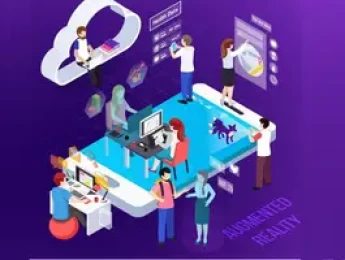Effective leaders possess a wide range of traits, and each individual has a unique management style that has allowed them to be successful. Although their leadership styles will vary, one consistent trait will always be charisma.
To be a great leader, you must have a strong communication style. Regardless of how brilliant an idea is, when communication is lacking, there will be no execution. Utilising the needed skills and developing your personal and authentic communication style to express ideas clearly and concisely will draw attention to you and your business.
Communication is not just for making your visions known but also for motivating your team. A productive working environment is one where the staff feel inspired and dedicated to the job and can better overcome adversity with your help. An empathic leadership voice will make people want to engage with you in powerful conversations that lead to powerful outcomes.
Upon completion of this course, participants will be able to:
- Understand and apply the principles of effective communication.
- Captivate your audience using passionate language.
- Utilise an empathetic leadership voice.
- Appropriately assign responsibility and manage authority.
- Encourage others to question their beliefs and make more ethical decisions.
- Offer initiatives and rewards for exceptional work.
- Find suitable ways to de-escalate conflict that minimise resistance and promote acceptance.
- Lead with confidence and dignity.
This course is designed for leaders in any workplace who wish to develop their leadership voice. It would be most beneficial for:
- Regional Managers
- Operations Managers
- Executive Directors
- Team Leaders
- Project Managers
- IT Managers
- Sales/Commercial/Marketing Directors
- Senior Executives
This course uses a variety of adult learning styles to aid full understanding and comprehension. Participants will review case studies of successful workplace leaders and assess their approaches to situations such as important events, coaching, and conflict.
Participants will work individually and in teams throughout this course. They should begin with individual learning to ensure they have an in-depth understanding of communication concepts and what circumstances would require a particular type of communication approach. Further into the course, participants will work in teams to practice and demonstrate communication. They will be able to receive and provide feedback to others to gain a more inclusive understanding of an empathetic leadership choice. The group activities will greatly aid participants as they will allow them to gain practical experience that can be highly beneficial in a real working environment.
Day 5 of each course is reserved for a Q&A session, which may occur off-site. For 10-day courses, this also applies to day 10
Section 1: The Voice of Leadership
- Review situations where specific communication is necessary.
- Assess how to use language effectively.
- Identify traits of successful leadership communication and recognise these in yourself.
- Learn the two vital components of a leader’s voice and tone.
- Analyse your dominant communication style.
Section 2: Establishing Powerful Communication
- Create the correct environment to promote your key messages.
- Strong, confident and charismatic communication.
- Have a clear and concise message to prevent miscommunication and lack of understanding.
- Inspire and encourage others to take responsibility in line with business values.
Section 3: Inspiring Others
- Evaluate situations that cause others to lack motivation.
- Positive mentoring to improve performance.
- Organise individual and group-based activities to create bonds and build morale.
- Efficiently address hostile situations to defuse tension and prevent further disputes.
Section 4: Coaching for Improved Performance
- Analyse techniques for coaching others.
- Recognise poor performance and conduct issues to improve performance.
- Understand the importance of frequent performance evaluations.
- Providing feedback in ways that promote a desire to improve.
Section 5: Implementing Strong Communication in Practice
- Identify personal and business targets.
- Establish goals and create plans to achieve them.
- Detailing short-term and long-term priorities using concise language.
- Create tactics to balance work productivity with team morale and welfare.
- Encourage team members to take initiative.
Upon successful completion of this training course, delegates will be awarded a Holistique Training Certificate of Completion. For those who attend and complete the online training course, a Holistique Training e-Certificate will be provided.
Holistique Training Certificates are accredited by the British Assessment Council (BAC) and The CPD Certification Service (CPD), and are certified under ISO 9001, ISO 21001, and ISO 29993 standards.
CPD credits for this course are granted by our Certificates and will be reflected on the Holistique Training Certificate of Completion. In accordance with the standards of The CPD Certification Service, one CPD credit is awarded per hour of course attendance. A maximum of 50 CPD credits can be claimed for any single course we currently offer.
- Course Code MG2-155
- Course Format Classroom, Online,
- Duration 5 days














